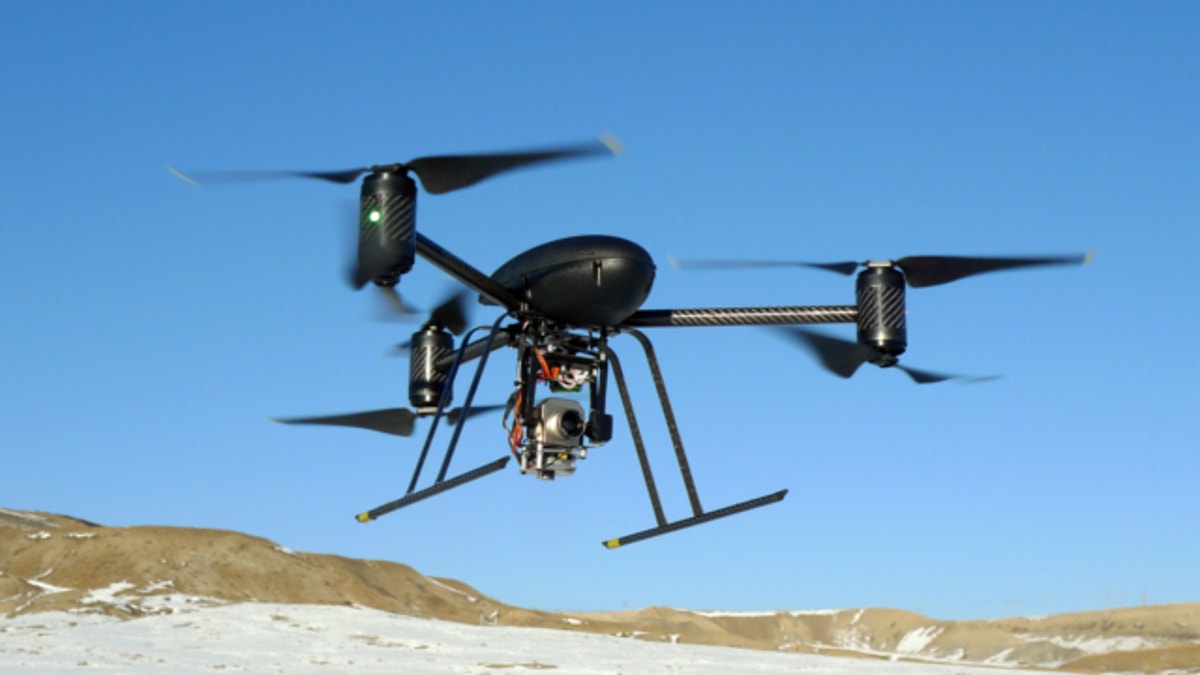
FILE: Jan. 8, 2009: This photo provided by the Mesa County, Colo., Sheriff's Department shows a small Draganflyer X6 drone during a test flight in Mesa County, Colo., with a Forward Looking Infer Red payload. (AP)
GRAND JUNCTION, Colo. – While one Colorado town's drone-hunting proposal has drawn national attention, lesser known is a keen competition by counties across the state to win federal approval to host civilian drone testing.
Industries, universities and county sheriffs showed off their latest unmanned surveillance craft Friday in western Colorado's Mesa County, which is vying with 13 other sites in Colorado to host civilian drone test zones.
The Federal Aviation Administration plans to approve six test sites across the nation in December. More than 20 states are in the running under the FAA Modernization and Reform Act of 2012, which requires that the agency begin phasing in drones for mapping, surveillance, monitoring farm and oil fields and other uses.
"We really won't be talking about the public safety piece of this. We're looking at this from an economic impact perspective," Ben Miller, the Mesa County Sheriff's Office drone program director.
Colorado's application includes more than 35,000 square miles of airspace, said Stan VanderWerf, executive director of the Colorado unmanned aircraft system team.
Many in Colorado remain opposed to drones. The plains town of Deer Trail, population 500, is considering a proposal to make itself a national attraction for gun enthusiasts and people skeptical of government surveillance by issuing drone-hunting licenses.
Citizens on Oct. 8 will vote on whether to issue $25 permits, with a $100 bounty for shooters who bring in debris from an unmanned aircraft "known to be owned or operated by the United States federal government."
The initiative's architect, Philip Steel, has insisted it's a symbolic stand — but it drew a stern warning of criminal or civil liability from the FAA.
Chris Miser, who operates a Denver-based drone manufacturing business, acknowledged there's plenty of skepticism toward the new technology.
"Business is slow because everyone has this bad perception that (unmanned aircraft) are nothing but bad, evil, killing, spying machines, and we've got to change people's perception," said Miser, a former U.S. Air Force captain who worked on drones for the military in Iraq.
VanderWerf even sees a business opportunity for Deer Trail, which he suggested could buy its own drones for hunters to shoot down.
"There are companies that are building small (drones) which behave like certain birds" as training for sport hunters, VanderWerf said. "I'd hope Deer Trail would go find companies building them and bring them out to a skeet shooting range there."












































